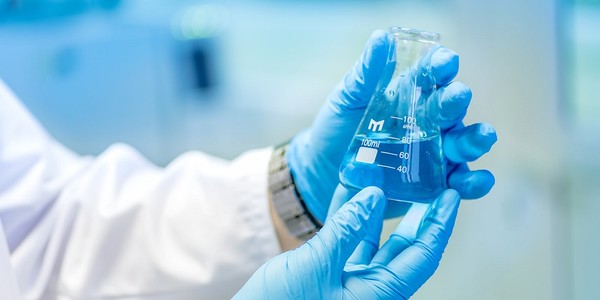Two Korean pharmaceutical companies are fiercely competing to receive regulatory approval for their biosimilar drugs of Lucentis (ingredient: ranibizumab), a macular degeneration medicine.

Chong Kun Dang and Samsung Bioepis have gone all out to develop the drug and are about to commercialize their products.
The patent on Lucentis, jointly developed by Roche's subsidiary Genentech and Novartis, expired in June 2020 in the U.S. and will do so in Europe in July 2022. According to the Korea Health Industry Development Institute, the number of macular degeneration patients in six countries --the U.S., the U.K., France, Germany, Italy, and Spain – is expected to reach near 3.87 million in 2035.
Samsung Bioepis completed its phase 3 clinical trials of Lucentis biosimilar, SB11, on people who had neovascular age-related macular degeneration and applied for approval to the European Medicines Agency (EMA) and U.S. Food and Drug Administration (FDA) in October and November last year.
"We have confirmed safety, efficacy, and pharmacokinetics of SB11 comparable to the original drug in the 52-week data," said Kim Hee-kyung, Samsung Bioepis senior vice president and leader of its clinical sciences division and regulatory affairs team.
Another company official said Samsung Bioepis is waiting for the two regulatory agencies' review. It has no detailed plans to submit a domestic approval application. The company will decide on domestic approval after confirming the ongoing reviews, the official said.
The global market for macular degeneration drugs is about 4 trillion won ($35.7 billion), which encouraged another drugmaker, Chung Kun Dang, to jump in the fray. As the number of people with macular degeneration grows due to population aging, Chong Kun Dang expects biosimilar to Lucentis will help to boost the company’s sales considerably.
The company began to develop its biosimilar, CKD-701, in 2012 and completed the phase 3 clinical trials last month. It plans to submit study results to the Ministry of Food and Drug Safety for authorization in the second half-year.
Chong Kun Dang's CKD-701 entered phase 3 clinical trials in 2018. The company continued its research at about 20 medical institutions, including Seoul National University Hospital.
"We are analyzing our study results and preparing to request regulatory approval based on the data," a company official said.
The company has no specific plans for submitting approval applications in the global market yet. Still, it will likely prepare them after submitting the request to the domestic regulator.
Chong Kun Dang plans to release its phase 3 study results after wrapping up the results and applying for domestic approval.

